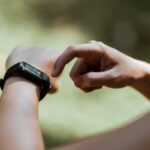With the latest distribution of free COVID-19 rapid tests across the nation and a variety of other home medical tests now easily accessible on store shelves and online platforms, a recent study delves into the perceptions of older adults regarding this surge in opportunities to address medical queries from the comfort of their homes.
The research utilises data gathered from a survey involving individuals aged between 50 and 80, probing their past experiences and opinions on a broad spectrum of home medical tests. These inquiries covered tests for conditions such as cancer, infections, allergies, and genetic traits and distinguished between tests that deliver immediate results and those that require samples to be mailed for analysis.
A considerable portion of the older demographic, 48%, reported purchasing at least one such test previously, excluding those obtained for free like the COVID-19 tests and according to results published in the journal Inquiry, which draw from data compiled by the University of Michigan National Poll on Healthy Aging, a vast majority of these purchasers, 91%, expressed willingness to repurchase these tests. The convenience of conducting tests at home was acknowledged by nearly 80% of the participants, with 60% deeming them reliable and 75% finding them cost-effective.
Interestingly, even among those who had not yet experimented with home testing at the time of the survey, 75% were open to trying it in the future, and 71% appreciated the convenience. However, fewer participants regarded them as reliable or financially worthwhile.
The survey highlighted notable disparities in the uptake and perception of home medical tests across different demographics, potentially exacerbating existing inequities in early disease detection and risk assessment. The researchers, affiliated with the U-M Institute for Healthcare Policy and Innovation, noted that individuals with higher educational attainments or household incomes were likelier to engage with these tests. For instance, 56% of respondents with a college degree and 61% with an income over $100,000 had purchased a home medical test, compared to lower percentages among other educational and income groups.
Educational background also influenced perceptions of convenience and the likelihood of future purchases. Meanwhile, racial and gender differences were evident as nicely, with 36% of Black older adults having purchased such tests, compared to higher percentages among other racial groups. Women showed a higher inclination towards future purchases of home tests, with 87% expressing interest, compared to 76% of men.
The study’s lead author, Dr. Joshua Rager, expressed surprise at the high proportion of older adults who had purchased home DNA tests, either for medical reasons or ancestry tracing. The proportion stood at 16% overall but was higher among those with higher education and income levels.
Concerns were also raised about one of the major companies in the DNA testing market, 23andMe, currently experiencing financial difficulties, which could affect customers’ control over their genetic information. This issue underscores the importance of ongoing scrutiny of how home testing impacts patient care and the broader healthcare landscape.
The researchers emphasise the necessity for clinicians to be aware of their patients’ increasing reliance on home testing and discuss the results and reasons for choosing these over traditional testing methods. Moreover, the regulatory landscape surrounding home tests, overseen by entities such as the U.S. Food and Drug Administration, plays a crucial role in shaping user experience and trust.
Ultimately, the findings from this study prompt a broader discussion on health equity and the potential for home testing to address disparities in access to medical services, especially in critical areas like cancer screening and managing conditions disproportionately affecting specific demographic groups. The insights from this poll are expected to inform regulators, policymakers, and further research in this evolving field.
More information: Joshua Rager et al, Use of At-Home Medical Tests Among Older US Adults: A Nationally Representative Survey, Inquiry. DOI: 10.1177/00469580241284168
Journal information: Inquiry Provided by Michigan Medicine – University of Michigan








